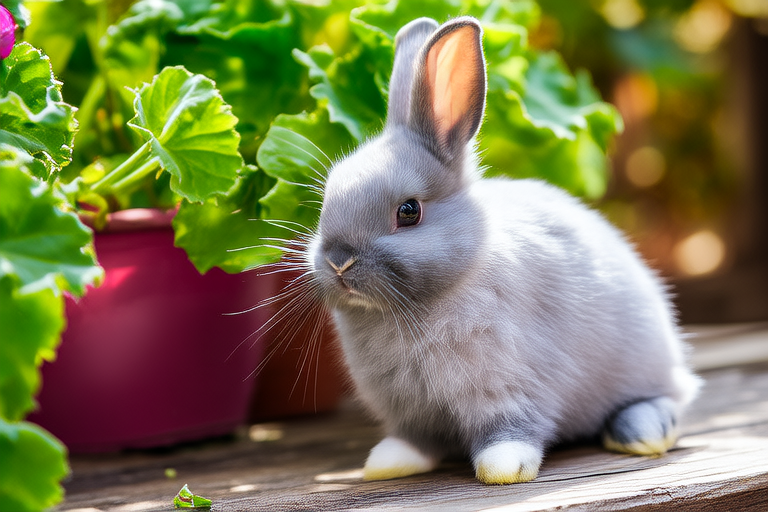From Lap Pets to Garden Companions: The Complete Guide to Caring for Dutch Dwarf Rabbits
Dutch Dwarf rabbits have gained significant popularity among pet owners due to their compact size, friendly demeanor, and charming appearance. These rabbits, originally bred from Netherland Dwarfs, are known for their distinctive white blaze and compact bodies, making them ideal lap pets. Their small stature and gentle nature make them perfect companions for families with children, as well as individuals seeking a low-maintenance pet. However, caring for Dutch Dwarfs requires understanding their specific needs and providing an environment that supports their well-being.
Ideal Living Environments
Creating a safe and comfortable space for your Dutch Dwarf rabbit is essential. A spacious indoor cage or hutch is necessary, ensuring they have enough room to move around and stretch. The cage should be at least 30 inches wide, 24 inches deep, and 18 inches high. The flooring should be solid to prevent injury to their delicate feet. Additionally, provide a litter box lined with paper-based bedding for easy cleaning. Outdoor hutches are also acceptable if they are predator-proof, weatherproof, and equipped with proper ventilation.
Dietary Needs
A balanced diet is crucial for the health of Dutch Dwarf rabbits. They require a mix of hay, fresh vegetables, and pellets designed specifically for dwarf breeds. Timothy hay should be available at all times as it aids digestion and keeps their teeth healthy. Fresh vegetables like carrots, spinach, and broccoli can be given in moderation, while fruits should be limited due to their sugar content. Avoid feeding them iceberg lettuce, as it can cause digestive problems. Always introduce new foods gradually to prevent stomach upset.
Grooming Tips
Grooming is an important aspect of maintaining the health and appearance of your Dutch Dwarf rabbit. Regular brushing helps remove loose fur, preventing hairballs. Use a soft-bristled brush to gently stroke against the grain of their coat. Bathing should only be done when absolutely necessary, as rabbits are clean animals and frequent bathing can strip their natural oils. If bathing is required, use a mild shampoo specifically formulated for rabbits and ensure they are thoroughly dried afterward to prevent chills.
Exercise Requirements
Dutch Dwarf rabbits are active creatures that need regular exercise to maintain their physical and mental health. Providing a play area outside their cage, supervised by a responsible adult, allows them to hop and explore. This area should be secure and free of hazards. Toys such as tunnels, chew toys, and cardboard boxes can stimulate their curiosity and provide entertainment. Exercise time should be limited to avoid overexertion, especially in warmer temperatures.
Common Health Issues
Like any other pet, Dutch Dwarf rabbits are susceptible to certain health issues. Common conditions include dental problems, respiratory infections, and gastrointestinal stasis. Regular veterinary check-ups are vital to catch and treat these issues early. Signs of illness may include loss of appetite, lethargy, runny nose, or changes in fecal output. Prompt attention to these signs can save your rabbit’s life. Maintaining a clean living environment and a balanced diet can help prevent many of these issues.
Socializing and Family Integration
Socializing your Dutch Dwarf rabbit is key to building a strong bond and ensuring they feel comfortable in their home. Begin by handling them gently and frequently, allowing them to get used to human interaction. Introduce them to family members one at a time, ensuring each person approaches calmly and quietly. Children should always be supervised when interacting with the rabbit to prevent accidental harm. Dutch Dwarfs can become quite affectionate and enjoy being part of the family, often seeking out attention and cuddles.
Responsibilities of Ownership
Owning a Dutch Dwarf rabbit comes with significant responsibilities. It’s important to understand that these pets require consistent care, attention, and a commitment to their well-being. This includes daily feeding, cleaning, and monitoring for any signs of distress. Owners must also be prepared for unexpected veterinary expenses and the emotional impact of losing a beloved pet. Taking on the responsibility of a Dutch Dwarf rabbit means dedicating time and resources to their care, ensuring they live a happy and healthy life.
Conclusion and Resources for Further Learning
Caring for Dutch Dwarf rabbits can be a rewarding experience, offering companionship and joy to those who take the time to understand and meet their needs. By providing a suitable living environment, a balanced diet, regular grooming, adequate exercise, and prompt medical care, you can ensure your Dutch Dwarf rabbit thrives. For further information, consider joining local rabbit clubs or online forums where experienced owners share tips and advice. Books on rabbit care, written by veterinarians and experienced breeders, can also provide valuable insights. Remember, with proper care and attention, your Dutch Dwarf rabbit will bring years of happiness and companionship to your home.
